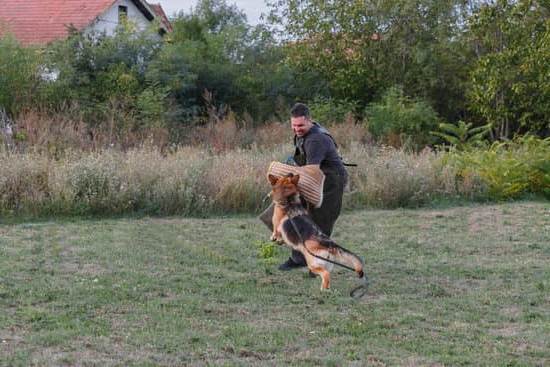Training a dog to be a duck dog involves teaching them specific skills required for successful duck hunting. From basic obedience commands to advanced retrieving techniques, the process requires patience, consistency, and dedication. In this article, we will explore the essential steps and strategies to train your four-legged companion to become an efficient duck dog.
Choosing the right breed plays a crucial role in shaping your dog’s abilities as a duck hunter. Certain breeds are naturally inclined towards waterfowl retrieving, making them ideal candidates for this specialized training. Understanding the characteristics and traits of different breeds can help you make an informed decision when selecting a puppy to train as a duck dog.
Before diving into advanced training techniques and hunting scenarios, it is important to establish a solid foundation with basic commands and obedience training. Teaching your dog to respond promptly to cues such as sit, stay, and heel sets the groundwork for more complex tasks involved in duck hunting. Building a strong bond based on trust and respect is key to successfully transforming your pet into an efficient duck dog.
Choosing the Right Breed for Duck Hunting
Duck hunting is a popular and rewarding outdoor activity that requires a well-trained and reliable companion – a duck dog. One of the most crucial steps in training a duck dog is selecting the right breed for the job. Not all dog breeds are suitable for duck hunting, so it is essential to carefully consider certain characteristics and traits when choosing a breed for this specific purpose.
When it comes to selecting the right breed for duck hunting, there are several factors to take into account. First and foremost, you want to look for a breed that has a strong retrieving instinct and excellent swimming abilities. Labrador Retrievers, Chesapeake Bay Retrievers, Golden Retrievers, and Boykin Spaniels are some of the most popular and reliable choices for duck dogs due to their natural hunting instincts and love for water.
Additionally, it is important to consider the size of the dog in relation to the environment where you will be hunting ducks. Smaller breeds may struggle with bigger ducks or in rough water conditions, while larger breeds may have difficulty maneuvering through dense vegetation.
By choosing a breed that is well-suited to the type of hunting you will be doing, you can set your duck dog up for success from the start. Ultimately, selecting the right breed lays a solid foundation for effective training on how to train a dog to be a duck dog.
Initial Training Steps for a Duck Dog
Establishing Basic Commands
Training a dog to be a duck dog starts with establishing basic commands and obedience. These foundational skills are crucial for your dog to understand its role in hunting and retrieving ducks effectively. Some of the essential commands to teach your dog include “sit,” “stay,” “come,” and “heel.” Consistent repetition, positive reinforcement, and patience are key elements in effectively teaching these basic commands to your furry companion.
Building a Strong Foundation
To successfully train your dog to be a duck dog, it is important to build a strong foundation of trust and communication between you and your pet. Positive reinforcement techniques such as using treats, praise, and toys can help motivate your dog to learn new commands and behaviors. Additionally, establishing a routine training schedule and maintaining consistency in your training sessions will aid in reinforcing obedience and good behavior in your dog.
Introducing Retrieval Skills
In addition to basic commands, introducing retrieval skills early on in your training process is essential for developing a successful duck dog. Begin by engaging your dog in simple fetch games using toys or dummies to encourage natural retrieving instincts. Gradually transition into retrieving objects over longer distances to mimic real hunting scenarios.
This step is crucial in preparing your dog for advanced training techniques specific to duck hunting, such as marking multiple targets and blind retrieves from water. By laying a solid groundwork of basic commands and retrieval skills, you’ll be setting your dog up for success as a skilled duck hunting companion.
Advanced Training Techniques for Retrieving Ducks
Training a dog to be a duck dog involves advanced techniques for retrieving ducks, which are essential for successful hunting trips. One crucial aspect of this training is teaching your dog to retrieve ducks both on land and in water. To do this, you can start by using dummy ducks or other floating objects to simulate real-life hunting scenarios.
Begin by throwing the dummy duck a short distance on land and encouraging your dog to bring it back to you. Gradually increase the distance and difficulty to challenge your dog’s retrieving skills.
Another important aspect of advanced training for retrieving ducks is teaching your dog proper delivery techniques. This includes ensuring that your dog delivers the duck gently without damaging it, as well as delivering it directly to your hand. You can practice this by rewarding your dog with treats or praise each time they deliver the duck correctly. Consistent reinforcement will help reinforce these desired behaviors in your dog.
Furthermore, consider incorporating scent training into your dog’s advanced retrieving training. Ducks have a distinct scent that dogs can learn to recognize, making it easier for them to locate and retrieve downed game during hunting trips.
Use scent-based training aids or real duck wings to help familiarize your dog with the odor of ducks. By incorporating scent training into your dog’s routine, you can enhance their tracking and retrieval abilities, making them more effective duck dogs in the field.
| Duck Dog Training Tip | Details |
|---|---|
| Retrieving Techniques | Teach your dog proper delivery methods for retrieved ducks. |
| Scent Training | Incorporate scent-based training aids or real duck wings to familiarize your dog with the odor of ducks. |
| Consistent Reinforcement | Reward correct behaviors during retrieving training sessions to reinforce desired actions in your duck dog. |
Introduction to Water Training for Your Dog
Water training is a crucial aspect of preparing your dog to become a skilled duck dog. Retrieving ducks from water bodies requires a specific set of skills and confidence in the water, making it essential for your dog to undergo proper water training. This sub-section will outline some key steps and techniques to help you introduce your dog to water training effectively.
Gradual Introduction to Water
When starting water training with your dog, it’s important to take things slowly and gradually introduce them to the concept of working in the water. Begin by allowing your dog to wade in shallow waters, gradually progressing to deeper areas as they become more comfortable. Use positive reinforcement techniques such as treats and praise to encourage your dog’s confidence in the water.
Retrieving Drills in Water
To train your dog for retrieving ducks in the water, start with simple drills by throwing objects such as bumpers or floating toys into the water for them to retrieve. Make sure to use clear commands such as “fetch” or “bring” to signal what you expect from them. As your dog becomes more proficient at retrieving objects in the water, gradually increase the difficulty by throwing items farther out or adding distractions.
Building Confidence and Stamina
Water training can be physically demanding for dogs, especially when retrieving ducks across large expanses of water. It’s essential to build your dog’s stamina through regular swimming exercises and practice sessions.
Additionally, focus on boosting their confidence by reinforcing positive behaviors during training and providing ample opportunities for success. By cultivating a strong bond with your dog and instilling a sense of teamwork during water training, you’ll set them up for success as a skilled duck dog in real hunting scenarios.
Equipments Needed for Training a Duck Dog
Training a dog to be a duck dog involves more than just giving basic commands and obedience. It requires the right equipment to ensure your training sessions are effective and safe for both you and your furry companion. Here are some essential tools and gear you will need to properly train your dog to become a proficient duck hunting companion:
- Whistle: A whistle is an essential tool for communicating with your dog during training sessions, especially when they are out in the field. Training your dog to respond to different whistle commands can help with directional control and signaling for retrieves.
- Dummy or Retrieving Dummy: Using dummies or retrieving bumpers is crucial for training your dog on how to properly retrieve ducks. Start with basic fetching exercises on land before progressing to water retrieves.
- Decoys: Introducing decoys early in the training process can help familiarize your dog with the sight and scent of ducks. Utilizing decoys during training sessions can simulate real hunting scenarios and improve your dog’s skills in retrieving game.
- Training Vest or Harness: A well-fitted training vest or harness can provide support and security during water training sessions. Choose a vest with handles for easy retrieval assistance in case your dog needs help while swimming.
- Duck Scent: Using duck scent dummies or real duck scent can enhance your dog’s tracking abilities and improve their ability to locate wounded ducks during hunts. Incorporate scent detection exercises into your training routine for better results in the field.
Investing in the right equipment is essential for successfully training a dog to be a duck dog. These tools not only aid in teaching necessary skills but also create a rewarding experience for both you and your four-legged hunting partner. With proper gear, consistent training, and patience, you can transform your beloved pet into a skilled duck hunting companion.
Remember, effective communication, positive reinforcement, and regular practice are key components of successful duck dog training. By utilizing the appropriate equipment mentioned above, you can enhance your training sessions and prepare your furry friend for fruitful hunting adventures in the great outdoors.
Whether you are starting from scratch or fine-tuning existing skills, having the right tools at hand will make the journey of transforming your pet into a reliable duck dog much smoother. Embrace each training session as an opportunity to strengthen the bond between you and your canine companion while working towards achieving mutual goals in the thrilling sport of duck hunting.
Incorporating Hunting Scenarios in Training Sessions
Incorporating hunting scenarios into your dog training sessions is essential to prepare your furry companion for the real challenges of duck hunting. By simulating realistic hunting situations, you can assess your dog’s skills and behavior under pressure while also building their confidence and instincts. Here are some key strategies on how to train a dog to be a duck dog through hunting scenarios:
- Start with basic land drills: Begin by setting up mock hunting scenarios on dry land to introduce your dog to the concept of retrieving and following commands in a controlled environment. Use decoys or dummy birds to simulate a hunting scenario where your dog has to locate, retrieve, and bring back the target.
- Progress to water retrieves: Once your dog demonstrates proficiency in land drills, transition to water training sessions. This helps in acclimating them to moving water, swimming, and retrieving ducks from ponds or lakes. Include obstacles such as logs or vegetation to mimic real-life hunting challenges.
- Introduce distractions: To prepare your dog for potential distractions during duck hunting trips, incorporate elements like gunshots, calls from other hunters, or different scents into training scenarios. This will help them stay focused on their task amidst external stimuli.
Equipments Needed for Training a Duck Dog
As you progress in training your dog to be a proficient duck retriever, it is essential to have the right equipment at hand for effective sessions. The following list outlines the necessary tools and gear required for successfully training a duck dog:
- Dummy ducks or bumpers: These are essential tools for teaching your dog how to retrieve ducks accurately. Start with lightweight bumpers before progressing to heavier dummy ducks that mimic the weight and size of real game birds.
- Retriever whistle: A retriever-specific whistle is crucial for communicating commands during training sessions, especially in large outdoor areas where verbal cues may not be sufficient. Train your dog to respond promptly to different whistle signals for efficient communication.
- Rubber boots or waders: Since duck dogs are often trained in wet environments like marshes or lakes, investing in waterproof rubber boots or waders is necessary to keep yourself dry and comfortable during water training exercises. Additionally, this gear provides better traction on slippery surfaces while handling retrievals.
Introducing Your Dog to Real Duck Hunting Environments
Once your dog has mastered basic obedience training and retrieving techniques, it’s time to introduce them to real duck hunting environments. This phase of training is crucial as it prepares your dog for the sights, sounds, and smells they will encounter during an actual duck hunting expedition. Start by taking your dog to a simulated hunting environment with water features, decoys, and other hunting equipment.
During these training sessions, focus on honing your dog’s ability to stay focused amidst distractions such as gunshots and the presence of other dogs. Use positive reinforcement techniques to reward good behavior and maintain your dog’s confidence in these challenging situations. Gradually increase the complexity of the scenarios by adding elements like moving decoys or multiple retrieves to simulate a true hunting experience.
As your dog becomes more comfortable in these hunting environments, take them out for practice hunts in actual duck hunting locations. This hands-on experience will help your dog acclimate to the sights and sounds of a real duck hunt and sharpen their skills in tracking down and retrieving ducks.
Remember to always prioritize safety during these training sessions and provide plenty of breaks for your dog to rest and recuperate. With consistency and patience, you’ll soon have a well-trained duck dog ready for any hunting adventure.
Advanced Tips for Maintaining a Well-Trained Duck Dog
Keeping your duck dog well-trained requires consistent effort and ongoing practice. Once your dog has mastered the basics of duck hunting, it’s important to continue refining their skills to ensure they perform at their best during hunting season. Here are some advanced tips for maintaining a well-trained duck dog:
First and foremost, it’s crucial to keep up with regular training sessions even during the off-season. Practice basic commands, obedience, and retrieving drills to keep your dog sharp and focused. Consistency is key in reinforcing good behavior and keeping your duck dog in top shape for hunting.
In addition to regular training sessions, consider incorporating challenging scenarios into your practice routine. Set up mock hunting scenarios that simulate real-life hunting situations to help your dog adapt and problem-solve in different environments. This type of advanced training will improve their skills and prepare them for any challenges they may face while out in the field.
Furthermore, make sure to continue building a strong bond with your duck dog through positive reinforcement and rewards. Praise good behavior, provide treats, and engage in playtime to strengthen the trust and connection between you and your four-legged hunting companion. A well-maintained relationship based on trust and respect will result in a more confident and reliable duck dog when it comes time to hit the waterfowl blinds or marshes.
By following these advanced tips for maintaining a well-trained duck dog, you can ensure that your canine partner is always ready for the next hunting adventure. Remember that training is an ongoing process that requires patience, dedication, and perseverance. With time and effort invested in honing your duck dog’s skills, you’ll be able to enjoy successful hunts together for many seasons to come.
Conclusion
Training a dog to be a successful duck dog requires dedication, patience, and consistency. By understanding the role of a duck dog and choosing the right breed for duck hunting, you can set the foundation for a fulfilling partnership in the field. Through initial training steps focusing on basic commands and obedience, you can establish a strong communication bond with your canine companion.
As you progress to advanced training techniques for retrieving ducks and introduce water training, your dog will develop the necessary skills to excel in real hunting scenarios. Equipping yourself with the right tools and incorporating hunting scenarios in training sessions will further enhance your dog’s abilities. Introducing your dog to actual duck hunting environments will provide invaluable experience and cement their training.
In conclusion, by following these steps on how to train a dog to be a duck dog, you can enjoy the fruits of your hard work and dedication. The bond between you and your well-trained duck dog will not only result in successful hunts but also create lasting memories in the great outdoors. Remember that consistency is key, and with time and effort, you can have a trustworthy companion by your side during all your hunting adventures.
Frequently Asked Questions
Can Any Dog Be a Duck Dog?
Not every dog can be a duck dog, as certain breeds are better suited for hunting and retrieving waterfowl. Breeds like Labrador Retrievers, Golden Retrievers, and Chesapeake Bay Retrievers are commonly used as duck dogs due to their natural instincts and abilities in the field.
How Do You Start Training a Duck Dog?
Training a duck dog starts with building a strong foundation of basic obedience commands like sit, stay, heel, and recall. From there, introducing the dog to water gradually and incorporating retrieving drills using decoys or dummies can help develop their skills for duck hunting. Consistency, patience, and positive reinforcement are key in training a successful duck dog.
What Is the Easiest Dog to Train for Duck Hunting?
The Labrador Retriever is often considered one of the easiest dogs to train for duck hunting due to their intelligence, eagerness to please, and natural retrieving instincts. Their strong swimming abilities and adaptable nature make them well-suited for the demands of hunting in water environments. With proper training and exposure to hunting scenarios, Labradors can excel as duck dogs.

Welcome to the blog! I am a professional dog trainer and have been working with dogs for many years. In this blog, I will be discussing various topics related to dog training, including tips, tricks, and advice. I hope you find this information helpful and informative. Thanks for reading!





